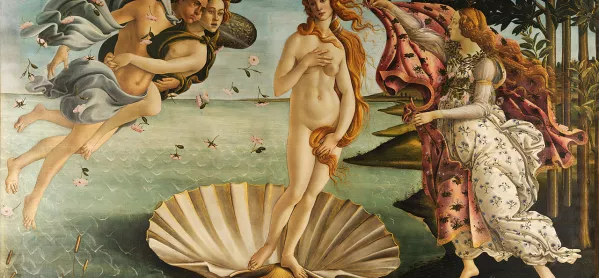Our guest speaker on pornography suddenly paused mid flow. “Come to think of it, I shouldn’t still be using inches to describe breast sizes, should I?” she reflected, while more than a hundred Year 13s in the hall shifted uneasily in their seats once again.
Alarmingly, her eyes then began scouring the hall for some teacher guidance: “Do you still measure in inches here, Mr Petty?”
“No, not usually,” was my guarded reply to this casual yet potentially career-wrecking question. My position on imperial breast measuring was not something I wanted to share with this particular audience.
Occasional off-timetable mornings are often approached with scepticism by teachers and students alike, but the experience invariably turns out to be memorable, worthwhile and educative. Each year group gets an increasingly rare but enriching opportunity to go down a road less travelled, give or take the odd pothole along the way.
Atypical dimensions
The overriding theme of the Year 13s’ morning was self-esteem. Before the pornography presentation, my tutor group had spent an hour reflecting - perhaps for the first time ever - on what kind of a person they really were, then finding out what a sample of other people thought about them. This proved to be an exceptionally positive and sometimes quite emotional experience.
Next they had heard from the government’s adviser on mental health in schools (and TES online columnist) Natasha Devon, who, among other things, advised them to stop worrying about how they looked and to worry instead about ridiculous body messages in the media.
The pornography presenter’s remit was naturally to continue with that theme of self-esteem. She had got on to the matter of inches because she was explaining that the dimensions of the men and women seen in porn films were not typical. Nor, she said, was it typical sex. There was real sex and there was pornography sex - poles apart, apparently.
Top-to-toe approach
It is, of course, helpful for young (and older) adults to be aware of such things, and to discuss the ethics of the whole industry. We definitely left the hall wiser and more self-confident, if a little less comfortable than when we had entered. Our presenter’s delivery was effective, systematic and relentless - her casual checking with her audience that she had “covered designer vaginas” (said in the routine manner in which one might check through a shopping list) was indicative of her meticulous, top-to-toe approach.
(However, I was not wholly convinced by her choice of accompanying YouTube clip: “The differences between Real Sex and Pornography Sex, using food”. I will not go into the details, but somehow the visual metaphors seemed at least as grotesque as the real thing.)
True education
Anyone who works in secondary schools will vouch for the fact that students need off-timetable sessions more than ever before. Planned well, they are rare opportunities for students to reflect and learn more about themselves and about world affairs, and to develop new life skills. Our Year 11s, for instance, were using their morning to prepare for and then participate in a UN-style debate on the issue of global migration.
Students hear so much about exams that they understandably come to believe that anything they do in school that is (seemingly) non-exam must be a waste of time. We should definitely continue to challenge their view and open their eyes to something at least approaching true education.
The limitations of an exam-focused experience are becoming increasingly apparent, even in the highest circles. A much deeper and broader educational experience for children is now both inevitable and desirable. So we need to continue to commit to and celebrate the value of all such experiences, so that we can encourage the change to happen as quickly as possible.
Stephen Petty is head of humanities at Lord Williams’s School in Thame, Oxfordshire
Want to keep up with the latest education news and opinion? Follow TES on Twitter and like TES on Facebook




